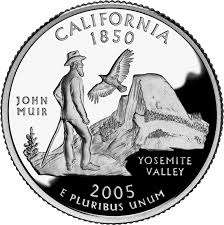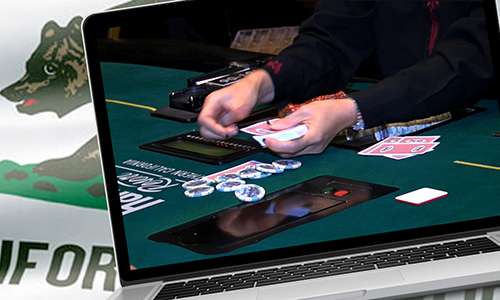California Online Poker Bill Amendments Filed
There’s the tiniest bit of movement on the online-poker legislative front in California, where a significant number of amendments to the current version of the Gray / Jones-Sawyer legislation, now known as AB 2863, have recently surfaced.
 This latest series of amendments touches on several topics that are critical to the bill’s chances, moving forward, ranging from the financial — tax rates and license fees — to one of the overriding tangles in this poker-themed Gordian Knot, the so-called “bad actor” debate that a handful of California’ most hardline tribes have used to attract a possible market competitor, PokerStars.
This latest series of amendments touches on several topics that are critical to the bill’s chances, moving forward, ranging from the financial — tax rates and license fees — to one of the overriding tangles in this poker-themed Gordian Knot, the so-called “bad actor” debate that a handful of California’ most hardline tribes have used to attract a possible market competitor, PokerStars.
Since that’s the most vital element of the proposed amendments, let’s start there, exerting from the nine-page detail of the latest proposed amendments that was released to the public overnight by California gaming attorney David Fried.
The previously amended version of AB 2863, which dates from April, carried some indeterminate language on the topic of suitability. Here, for the starting point, is how that existing section of the bill read:
(5) In the case of a tribe or a wholly owned tribal entity that is a service provider, the investigation shall be limited to the business officers of the tribal entity that will serve as the service provider.(e) A full investigation shall include a review and evaluation of the service provider’s qualifications and experience to provide the services anticipated, which shall include the required submission of a report prepared on each service provider by an outside firm contracted and supervised by the department, in a format developed by the department, and at the service provider’s expense. The report shall include information necessary for the department to make a determination of suitability, as specified in regulations adopted pursuant to this chapter, consisting of, but not limited to, personal history, prior activities and associations, credit history, civil litigation, past and present financial affairs and standing, and business activities, including whether the applicant or an affiliate of the applicant has a financial interest in any business or organization that is or was engaged in any form of gaming or transactions related to gaming prohibited by the law of the federal or state jurisdiction in which those activities took place. The department may specify additional requirements regarding the contents of the report and other information or documentation required to be submitted.
The expanded and clarified suitability definition picks up from there, inserting into and expanding the next section:
(f) (1) Unless licensed or authorized pursuant to this chapter or comparable federal or state law in the jurisdiction where the bet or wager was made or the facilitation of the wager or financial transaction occurred, there is a rebuttal presumption that an applicant for a service provider is unsuitable if either of the following occurred:
(A) The applicant, or its corporate or marketing affiliate, accepted a bet or wager on any form of Internet gambling, or engaged in a transaction relating to those bets or wagers, from a person located in the United States after December 31, 2011.
(B) A member of the board of directors or the ultimate parent company of, the chief executive officer of, or a shareholder holding more than 10 percent of the shares of, the applicant or its corporate or marketing affiliate, was directly involved in an executive or decisionmaking capacity in facilitating a wager or financial transaction relating to Internet gambling in the United States and that person remains affiliated with the applicant at the time of the application.
The proposed amendment continues on there with some additional clarifications, but the December, 31, 2011 date is the biggee. That date would clear PokerStars from any de facto declaration of unsuitability based upon its previous service of US-based customers until April of 2011. The end-of-2011 cutoff date is also important, when combined with other newly proposed amendments that further declare this to be an online poker-only bill, because that date can be seen to correspond with the opinion by then-US Attorney General Eric Holder that the 1961 Wire Act applies only to sports betting.
That position — that the Wire Act indeed applied only to sports betting — has always been the pivotal point in PokerStars’ longstanding legal argument that its poker-only services to the US market were never illegal. It is also important to note that PokerStars admitted no guilt regarding those poker services when the site’s previous ownership reached a major settlement with the US Department of Justice back in 2012.
What the end-of-2011 cutoff date would do, however, is potentially bar the California door to companies such as Bodog and its US-facing brand, Bovada, or the Australia-based Merge Network, or a handful of other offshore companies.
Few people are talking about these latest amendment proposals, which, as already noted, have yet to see an official note. The amendments also include a new figure for the base licensing fee, $12.5 million, and a sliding tax rate based on gross gaming revenue that starts at 8.847%. Should a service provider top $350 million in annual GGR, the incremental rate tops out at 15%, but even in a state as populous as California, those numbers would take some doing to reach.
We’ll keep an eye on this one. FlushDraw was unable to secure any official comment on these proposals before this story went to publication, but it’ll be interesting to see if the roster of who’s lining up on each side matches some of the historic divisions in this ongoing legislative battle.




















COMMENTS